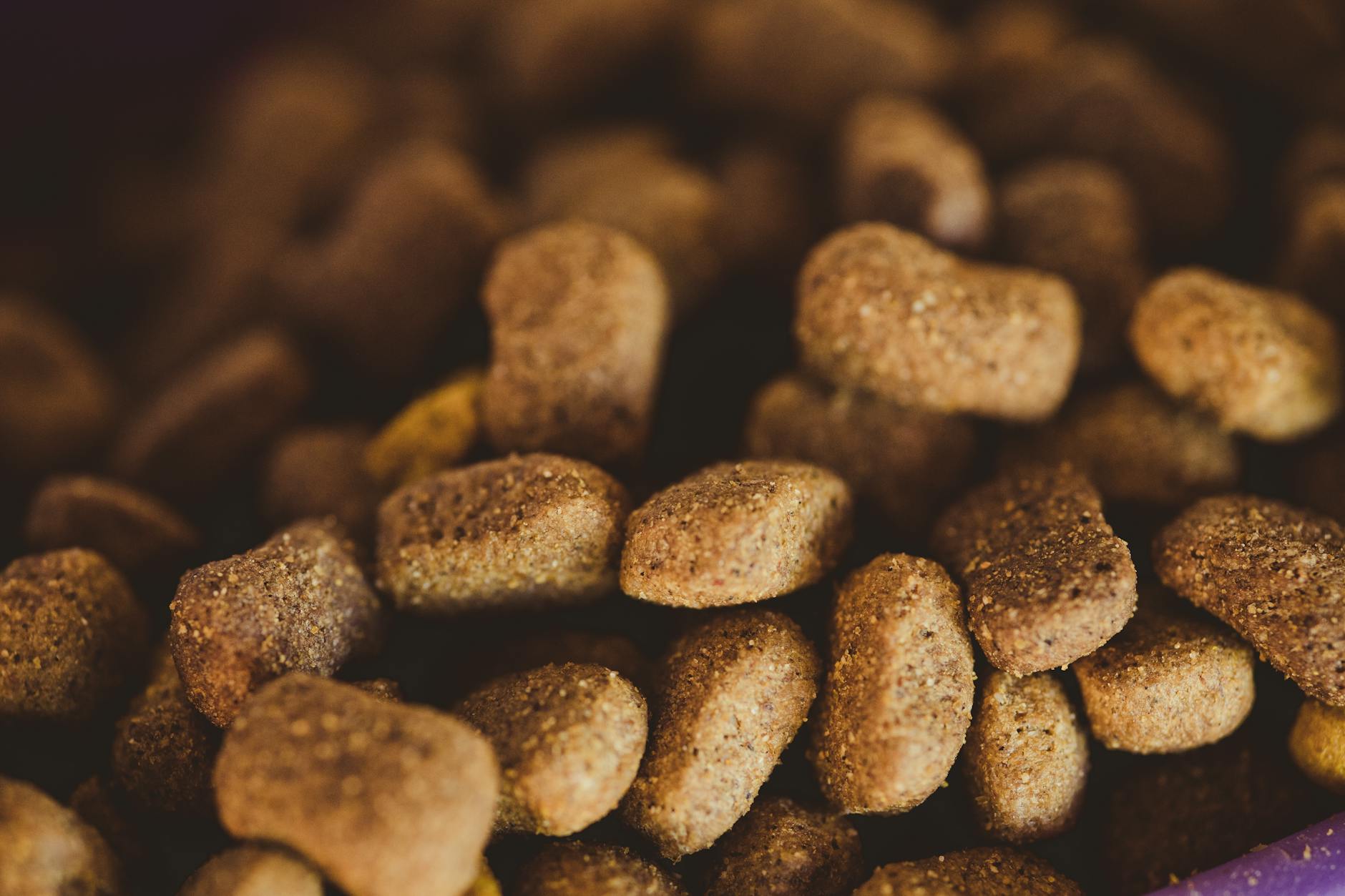Best Dog Food for French Bulldogs

Best Dog Food for French Bulldogs. Choosing the right food for your French Bulldog isn’t just about taste but their well-being. French Bulldogs are prone to allergies and sensitive stomachs, so their diet needs extra attention.
The right food can improve their digestion, energy, and overall health. With so many options available, knowing what works best for their unique needs will make all the difference. Let’s explore what will keep your furry friend healthy and happy for years.
Table of Contents
Understanding the Nutritional Needs of French Bulldogs
French Bulldogs might be small in size, but their dietary needs are anything but simple. As a breed known for their affectionate nature and unique physical traits, they require a carefully balanced diet to maintain optimal health. Let’s explain exactly what their nutritional profile looks like and how you can meet their specific needs.
Essential Nutrients for French Bulldogs
French Bulldogs thrive on a diet rich in targeted, high-quality nutrients to support their overall well-being. Here’s what they need most:
- Omega fatty acids are essential for keeping the skin and coat healthy. French Bulldogs are prone to skin sensitivities, so including omega-3 and omega-6 fatty acids can make a difference. Fish oil and flaxseed are excellent sources.
- Glucosamine and Chondroitin: These compounds play a significant role in promoting joint health. French Bulldogs’ compact bodies can strain their joints, so a diet with added glucosamine helps maintain mobility as they age.
- High-Quality Protein: Their muscular build relies on protein for strength and endurance. Focus on foods with chicken, beef, or lamb as the first ingredient. Protein supports their active muscles and keeps their energy levels steady.
Attention to these nutrients will set the foundation for a healthier, happier Frenchie.

Photo by Pixabay
Common Health Issues in French Bulldogs and Dietary Solutions
French Bulldogs face several health problems, many of which can be managed or even prevented with the proper diet. Here’s how you can tailor their nutrition to tackle these common issues:
- Flatulence: If your Frenchie frequently suffers from gas, their diet might lack easily digestible ingredients. Look for dog foods with limited ingredients, and avoid fillers like corn and soy. Adding probiotics can also support digestive health.
- Food Allergies: Their skin and digestive problems are often traced back to allergies. Switching to grain-free or hypoallergenic dog food with novel proteins like duck or venison can help reduce triggers.
- Obesity: French Bulldogs are prone to weight gain due to low energy levels. A diet incorporating high-fiber vegetables while maintaining moderate fat content can help control weight effectively. Portion control also plays a vital role in managing their weight.
With the right food choices, you can tackle these challenges and make sure your furry companion lives their best life!
Top Recommended Dog Foods for French Bulldogs
French Bulldogs have unique dietary needs due to their sensitive stomachs, allergies, and tendency for weight gain. Finding the right food helps support their overall health, keeping them active and happy. Let’s explore some of the top choices tailored for Frenchies.
Best Dry Dog Food Options
Dry kibble is convenient and helps maintain dental health. However, choosing a formula that supports digestion and meets nutritional needs is crucial. Here are some top-rated dry dog foods perfect for French Bulldogs:
- Royal Canin French Bulldog Adult Dry Dog Food: This breed-specific formula is crafted to meet the nutritional needs of adult French Bulldogs. It includes easily digestible proteins and a unique kibble shape for easier chewing.
- Hill’s Science Diet Sensitive Stomach & Skin: An excellent option for dogs with sensitive stomachs, this formula includes a prebiotic fiber to support a healthy microbiome.
- Blue Buffalo Life Protection Formula Small Breed: Ideal for small breeds, this recipe features real meat as the first ingredient and a blend of antioxidants, vitamins, and minerals.
These options ensure your French Bulldog gets well-balanced nutrition and targeted health benefits.

Photo by Merve Nazlı Meral
Best Wet Dog Food Options
Wet food is an excellent choice for French Bulldogs who need softer meals or extra hydration. If your pup struggles with allergies or weight, these options can help:
- Wellness CORE Grain-Free Canned Dog Food: Packed with premium proteins like turkey and chicken, this grain-free recipe is ideal for dogs with food sensitivities.
- Merrick Grain-Free Wet Dog Food: This formula supports healthy weight management with real meat and wholesome veggies, catering to Frenchie-specific dietary needs.
- Natural Balance L.I.D. Wet Dog Food: With limited ingredients, this wet food suits dogs suffering from stomach issues or allergies.
Wet food options are perfect for enhancing your Frenchie’s mealtime enjoyment while addressing specific health concerns.
Specialized Diets for Allergies and Food Sensitivities
French Bulldogs are prone to food allergies and sensitivities, leading to skin irritation and digestive upset. A specialized diet can make a big difference:
- CANIDAE PURE Limited Ingredient Diet: Made with eight key ingredients, this formula is free from common allergens like soy, wheat, and corn.
- Nutro Limited Ingredient Diet Grain-Free Dog Food: This grain-free option for sensitive stomachs includes simple, wholesome ingredients.
- Zignature Select Cuts: This food minimizes the risk of allergic reactions by featuring novel proteins like duck and venison.
Choosing limited-ingredient or hypoallergenic foods helps eliminate triggers and keeps your Frenchie comfortable and itch-free.
Homemade and Fresh Dog Food Choices
For dog owners seeking more control over ingredients, homemade or fresh dog food can be a fantastic choice for French Bulldogs. However, it requires careful planning:
- Fresh Food Services: Companies like The Farmer’s Dog and Ollie offer freshly cooked meals tailored to your dog’s needs.
- Homemade Recipes: A mix of lean proteins, vegetables, and healthy carbs can create a balanced meal at home. For example, cooked chicken, brown rice, and carrots are a simple, nutritious combination.
Important Note: Always consult your veterinarian before switching to a homemade diet. They’ll ensure your pup gets a balanced diet with the necessary vitamins and minerals.
French Bulldogs thrive on food customized for their unique needs. Whether you go for commercial dry or wet food or explore fresh or homemade diets, the key is to prioritize high-quality, breed-specific nutrition to keep your furry friend healthy and happy.
How To Transition Your French Bulldog to a New Diet
Transitioning your French Bulldog to a new diet is vital for their health, but it has to be done carefully. Dogs, especially French Bulldogs with sensitive stomachs, thrive on consistency. Sudden dietary changes can lead to digestive issues, so patience and a gradual switch are key.
Signs Your Bulldog is Adjusting Well
When switching diets, it’s essential to monitor your Frenchie’s response. Positive changes show that your new choice of food is doing its job.
Some signs that your French Bulldog is adjusting well include:
- A Shiny, Healthy Coat: French Bulldogs are prone to skin sensitivities, so a noticeable improvement here is a great indicator.
- Regular, Firm Stools: Better digestion leads to more consistent and healthy bowel movements.
- Boosted Energy Levels: Does your little buddy seem livelier and more playful? That’s another win.
It’s helpful to track these improvements over the first couple of weeks. It may be time to consult your vet if you notice negative changes like watery stools or lethargy.

Photo by Péter Borkó
Dealing with Feeding Challenges
Let’s face it: not every French Bulldog will transition to a new diet smoothly. Common issues like picky eating or food intolerances can crop up, but solutions exist.
Managing Picky Eaters
French Bulldogs can be picky, turning their noses up at new food. If this happens:
- Gradually mix the new food with their old one, increasing the ratio of new food every few days.
- Warm the new food slightly to enhance its aroma and make it more appealing.
- Add a tablespoon of wet food or low-sodium chicken broth to dry kibble.
Addressing Food Intolerances
Some dogs may show food intolerance during the transition, such as vomiting, diarrhea, or itchy skin. Here’s how to address it:
- Identify the ingredient causing discomfort and switch to a limited-ingredient formula.
- Consider hypoallergenic dog food options or novel protein sources like duck or venison.
- Always introduce any new food gradually over 7–10 days to prevent digestive upset.
For further guidance on dog nutrition strategies, check out Dog Nutrition Guidelines – Dog Breeds to ensure your transition process is smooth and your pup stays healthy.
Diet transitions might take time and effort, but with observation and care, your Frenchie will thrive on their new meal plan.
Tips for Maintaining a Balanced Diet
A well-rounded diet is the cornerstone of your French Bulldog’s health and happiness. Since Frenchies are prone to specific health issues, meals must be planned thoughtfully. Let’s explore how to keep their diet balanced and nutritious.
Avoiding Overfeeding and Obesity
French Bulldogs are sweet but often food-obsessed, which makes controlling their portions vital. Obesity is common among this breed due to their small frame and relatively low energy levels. Here’s how you can keep your Frenchie at a healthy weight:
- Portion Control: Always measure their meals with a standard scoop or kitchen scale. Stick to the feeding guidelines on your chosen dog food bag—it’s there for a reason.
- Scheduled Meals: Feed your dog twice daily instead of leaving food out all day. This helps regulate their metabolism and avoids overeating.
- Treats in Moderation: Treats should make up no more than 10% of their daily calorie intake. Swap high-calorie treats for low-fat options like carrot sticks or green beans.
- Active Play: French Bulldogs may not be marathon runners, but daily walks and short play sessions can prevent weight gain.
Keeping an eye on your French Bulldog’s weight ensures they remain spry and ready for cuddles!
For further tips on ensuring your dog maintains a healthy weight and proper nutrition, check out Dog Nutrition Tips.
Monitoring Food Allergies
French Bulldogs are famous for their sensitive tummies and potential for food allergies. Common symptoms include itchy skin, ear infections, and gastrointestinal distress. How can you address this?
- Watch for Signs: Persistent scratching, hot spots, or recurring diarrhea might indicate an allergy.
- Elimination Diet: Work with your vet to introduce a limited-ingredient diet to identify the problematic food. Common culprits include chicken, beef, and grains.
- Hypoallergenic Foods: Look for hypoallergenic or grain-free options containing novel proteins like duck or fish.
- Avoid Food Changes Often: Sudden diet changes can exacerbate allergies, so always transition foods gradually.
Keeping track of how your dog reacts to specific ingredients makes meal planning more effective and reduces discomfort for your Frenchie.
Supplementing Your Dog’s Diet
Sometimes, even the best dog foods need extra help addressing your Frenchie’s unique needs. Supplements can fill gaps in their nutrition and promote overall health. Here are some beneficial additions:
- Probiotics: These improve gut health by enhancing digestion and reducing flatulence. They are invaluable for French Bulldogs prone to stomach sensitivities.
- Fish Oil: Rich in omega-3 fatty acids, fish oil can reduce inflammation, support heart health, and maintain a glossy coat.
- Multivitamins: If your French Bulldog is on a restricted or homemade diet, multivitamins can ensure they’re getting all the essential nutrients.
Always check with your veterinarian before introducing supplements, as over-supplementation can cause issues.

Photo by Rafael Rodrigues
Explore our guide on Homemade Dog Meal Recipes for more healthy diet ideas. With careful planning and adjustments, your Frenchie can enjoy a balanced diet that supports their unique needs.
Frequently Asked Questions About Choosing Dog Food for French Bulldogs
When it comes to feeding French Bulldogs, there are often many questions and concerns from dog owners. This FAQ section addresses some of the most common inquiries to help you make confident choices for your furry friend.
What Ingredients Should I Look for in Dog Food for French Bulldogs?
French Bulldogs require specific nutrients to support their unique needs, such as:
- High-Quality Protein: Builds muscle and provides energy. Look for chicken, lamb, or fish listed as the first ingredient.
- Limited Ingredients: Ideal for dogs prone to food allergies, ensuring fewer potential irritants.
- Omega-3 and Omega-6: Supports skin and coat health, which is crucial for a breed prone to sensitivities.
- Digestive Support: Prebiotics, probiotics, and easily digestible fiber help with their notoriously sensitive stomachs.
Choosing food with these ingredients will prioritize your Frenchie’s long-term health and happiness.
You can explore Dog Breed Guide: Find Your Perfect Companion for more nutrition guidance specific to breeds.
How Do I Know if My French Bulldog Has Food Allergies?
Food allergies in French Bulldogs are relatively common. Symptoms to watch for include:
- Chronic itchy skin or ear infections.
- Persistent gastrointestinal issues like vomiting or diarrhea.
- Belly rash or hot spots.
If you notice these signs, consult your vet. They may recommend a hypoallergenic diet or an elimination trial to identify triggers.
How Much Should I Feed My French Bulldog?
Feeding guidelines depend on factors like weight, age, and activity level. Here’s a general starting point:
- Puppies: 1 ½ to 2 ½ cups spread across three meals daily.
- Adults (20-28 lbs): Around 1 to 1 ½ cups split into two meals per day.
- Seniors: Adjust the portion based on lower activity levels.
It’s always best to follow the advice provided on your dog food packaging and consult your vet.
Can I Give My French Bulldog Human Food?
Some human foods, like boiled chicken or plain rice, are safe in moderation. However, avoid feeding them grapes, chocolate, onions, garlic, or processed foods, as these can be toxic to dogs. Stick primarily to high-quality commercial dog food or vet-approved homemade meals.
What’s the Best Way to Switch My French Bulldog’s Food?
Transitioning your Frenchie to new food should be done slowly over 7-10 days:
- Days 1-3: Mix 25% new and 75% old food.
- Days 4-6: Use a 50/50 ratio of old and new food.
- Days 7-9: Shift to 75% new and 25% old food.
- Day 10: Fully transition to the new food.
This step-by-step process reduces the risk of upset stomach or diarrhea.
Are Grain-Free Diets Necessary for French Bulldogs?
Grain-free diets can benefit French Bulldogs prone to allergies but are not always necessary. Grain-inclusive diets with wholesome ingredients like brown rice or oatmeal can also be well-tolerated. Discuss with your vet the best option for your pet’s needs.

Photo by Pixabay
These FAQs serve as a quick reference guide for understanding your French Bulldog’s dietary needs, helping you make informed decisions to support their health. For further details, you might also want to explore information on specific dog breed nutrition, such as Unveiling The Newfoundland Dog Breed Personality.
Conclusion
Selecting the best dog food for your French Bulldog goes beyond satisfying hunger—it’s an investment in their long-term health. Proper nutrition can improve digestion, skin, and energy levels while minimizing common breed-specific issues like allergies and weight gain.
Every Frenchie has unique needs, so consulting your veterinarian ensures you make informed choices. They can confirm whether your diet addresses your pup’s sensitivities and lifestyle.
If you’re exploring ways to keep your pet’s diet balanced, start with actionable advice from Dog Nutrition Tips.
Your French Bulldog deserves a diet that supports their vibrant personality and keen companionship—choose wisely!






